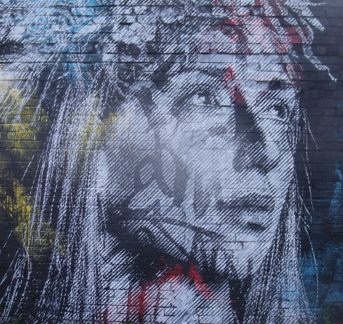The public does not trust the private sector to use facial recognition technology ethically, according to a survey by the Ada Lovelace Institute, a research body set up last year by the Nuffield Foundation.
On trust, the report points out that the product be deployed semi-covertly (on CCTV cameras), and pervasively. “As the lines between public and private space become increasingly blurred, it is not clear to people how the technology works, when it is being used, and by whom …” the report says.
Its report, Beyond face value: public attitudes to facial recognition, coincided with a High Court judgement that South Wales Police use of facial recognition was lawful, in a case brought by a Cardiff resident represented by the civil rights campaign group Liberty.
The survey found no unconditional support for police to deploy facial recognition technology: rather, support is conditional upon limitations and subject to appropriate safeguards. The Institute says police need to do field tests of live facial recognition in a range of policing contexts, given high error rates so far, before the technology can be said to be fit for purpose.
As the report points out, facial recognition has become commonplace in some places; it’s on personal devices, and at airports. The Institute says its findings call into question the assumption that police have carte blanche to adopt new technologies, and support efforts to review legal and policy frameworks. The Ada Lovelace Institute is calling for companies to temporarily stop selling and using facial recognition, while the public is consulted on its use.
Carly Kind, Director of the Institute said that facial recognition may be lawful, but that does not mean its use is ethical. She said: “The UK is not ready for facial recognition technology. As a first step, a voluntary moratorium by all those selling and using facial recognition technology would enable a more informed conversation with the public about limitations and appropriate safeguards. To model the values we espouse, we are setting up a Citizens Biometric Council, a citizens’ assembly that will bring experts and citizens together to ensure the public can play an active role in shaping the use of facial recognition and other similar biometrics technologies – an approach that has been endorsed by the Information Commissioner.
“The fact that the deployment of a new technology, with which a significant proportion of the public are not comfortable, can be deemed technically compliant underlines the need for an informed public discourse on what new restrictions and safeguards are needed.”
About the survey
A survey of 4,109 adults was done by polling firm YouGov. For details, visit the Institute website.
For Liberty on the subject, visit https://www.libertyhumanrights.org.uk/resist-facial-recognition. For South Wales Police and PCC comment on the High Court judgement, visit https://www.south-wales.police.uk/.
Picture by Mark Rowe; graffiti art, Cheltenham town centre.










